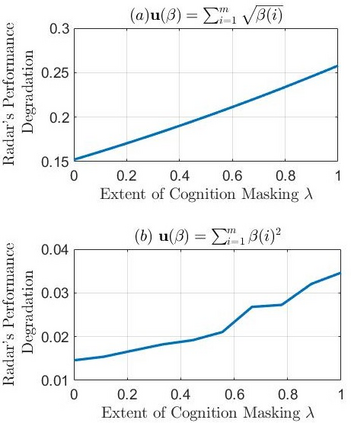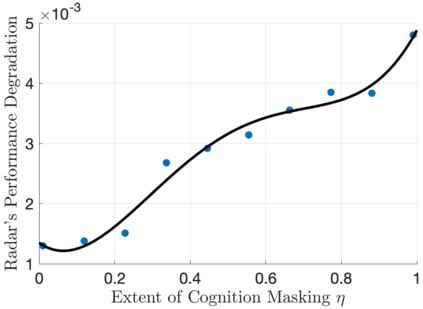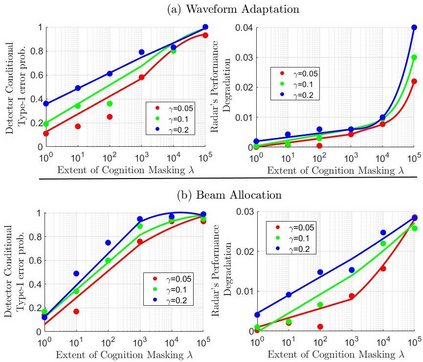A cognitive radar is a constrained utility maximizer that adapts its sensing mode in response to a changing environment. If an adversary can estimate the utility function of a cognitive radar, it can determine the radar's sensing strategy and mitigate the radar performance via electronic countermeasures (ECM). This paper discusses how a cognitive radar can {\em hide} its strategy from an adversary that detects cognition. The radar does so by transmitting purposefully designed sub-optimal responses to spoof the adversary's Neyman-Pearson detector. We provide theoretical guarantees by ensuring the Type-I error probability of the adversary's detector exceeds a pre-defined level for a specified tolerance on the radar's performance loss. We illustrate our cognition masking scheme via numerical examples involving waveform adaptation and beam allocation. We show that small purposeful deviations from the optimal strategy of the radar confuse the adversary by significant amounts, thereby masking the radar's cognition. Our approach uses novel ideas from revealed preference in microeconomics and adversarial inverse reinforcement learning. Our proposed algorithms provide a principled approach for system-level electronic counter-countermeasures (ECCM) to mask the radar's cognition, i.e., hide the radar's strategy from an adversary. We also provide performance bounds for our cognition masking scheme when the adversary has misspecified measurements of the radar's response.
翻译:认知雷达是一种有限的工具最大化, 用于根据不断变化的环境调整其感知模式。 如果对手能够估计认知雷达的功用功能, 它可以确定雷达的感测策略, 并通过电子反措施( EMM) 来降低雷达的性能。 本文讨论认知雷达如何能从检测认知的对手那里隐藏其战略。 雷达通过向对手的内曼- 皮尔逊探测器发送故意设计的亚最佳反应来进行。 我们通过确保对敌探测器的I型误差概率超过对雷达性能损失的特定容忍程度, 提供理论保证。 我们通过涉及波形适应和感应分配的数字例子来说明我们的认知雷达隐蔽计划。 我们显示, 雷达的最佳战略有意识的微小偏差, 从而掩盖了雷达的知觉。 我们的方法使用了从显露的微观经济偏好和反向反反向强化学习的新思维。 我们提议的算法为系统级的内端雷达战略提供了一种有原则性的方法, 我们的内定型雷达的内存性战略也提供了我们的内衣。









